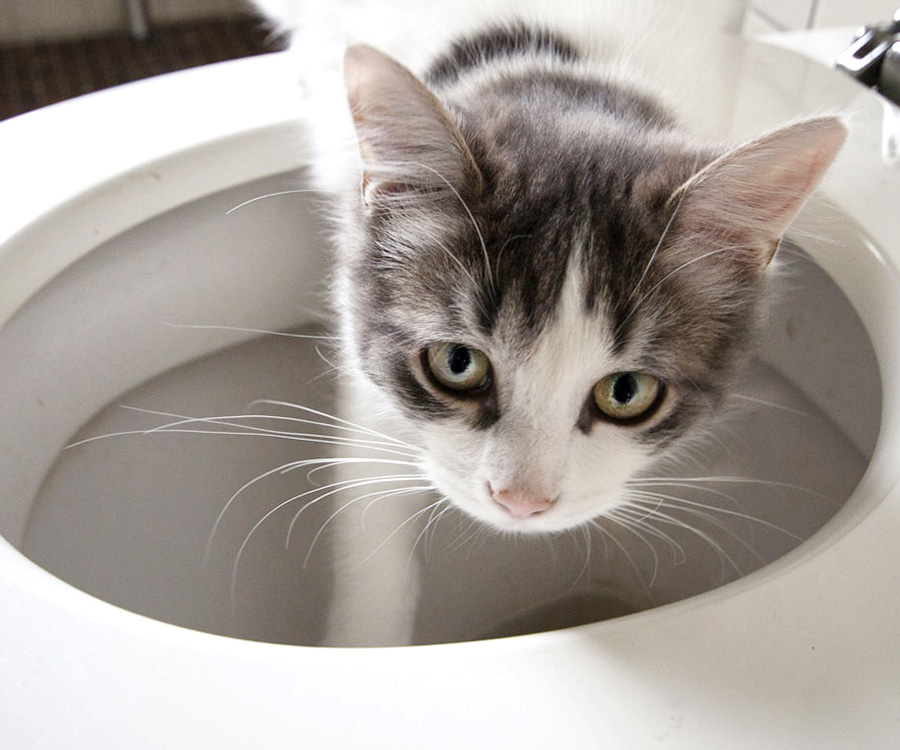The Consequences of Flushing Cat Poop Down Your Toilet - Protect Your Pipes
The Consequences of Flushing Cat Poop Down Your Toilet - Protect Your Pipes
Blog Article
Almost everyone has got their own opinions about Can You Flush Cat Poo or Litter Down the Toilet?.

Intro
As feline proprietors, it's necessary to bear in mind exactly how we dispose of our feline good friends' waste. While it may appear practical to purge feline poop down the commode, this method can have detrimental repercussions for both the setting and human health and wellness.
Ecological Impact
Flushing feline poop presents damaging pathogens and bloodsuckers right into the supply of water, posturing a significant danger to marine communities. These impurities can negatively affect aquatic life and compromise water high quality.
Wellness Risks
In addition to environmental problems, flushing feline waste can additionally pose health dangers to human beings. Feline feces might have Toxoplasma gondii, a parasite that can create toxoplasmosis-- a possibly severe disease, especially for expectant females and people with weakened immune systems.
Alternatives to Flushing
Fortunately, there are safer and much more accountable ways to dispose of cat poop. Think about the complying with options:
1. Scoop and Dispose in Trash
One of the most usual approach of getting rid of feline poop is to scoop it right into an eco-friendly bag and throw it in the trash. Be sure to utilize a devoted trash scoop and throw away the waste immediately.
2. Use Biodegradable Litter
Opt for naturally degradable cat litter made from materials such as corn or wheat. These litters are eco-friendly and can be securely taken care of in the garbage.
3. Hide in the Yard
If you have a lawn, take into consideration hiding pet cat waste in an assigned area away from vegetable yards and water resources. Make sure to dig deep sufficient to avoid contamination of groundwater.
4. Install a Pet Waste Disposal System
Invest in a pet waste disposal system particularly designed for cat waste. These systems utilize enzymes to break down the waste, reducing smell and environmental impact.
Verdict
Liable animal ownership extends past supplying food and shelter-- it also involves correct waste administration. By refraining from flushing pet cat poop down the commode and going with alternate disposal methods, we can minimize our ecological impact and safeguard human health.
Why Can’t I Flush Cat Poop?
It Spreads a Parasite
Cats are frequently infected with a parasite called toxoplasma gondii. The parasite causes an infection called toxoplasmosis. It is usually harmless to cats. The parasite only uses cat poop as a host for its eggs. Otherwise, the cat’s immune system usually keeps the infection at low enough levels to maintain its own health. But it does not stop the develop of eggs. These eggs are tiny and surprisingly tough. They may survive for a year before they begin to grow. But that’s the problem.
Our wastewater system is not designed to deal with toxoplasmosis eggs. Instead, most eggs will flush from your toilet into sewers and wastewater management plants. After the sewage is treated for many other harmful things in it, it is typically released into local rivers, lakes, or oceans. Here, the toxoplasmosis eggs can find new hosts, including starfish, crabs, otters, and many other wildlife. For many, this is a significant risk to their health. Toxoplasmosis can also end up infecting water sources that are important for agriculture, which means our deer, pigs, and sheep can get infected too.
Is There Risk to Humans?
There can be a risk to human life from flushing cat poop down the toilet. If you do so, the parasites from your cat’s poop can end up in shellfish, game animals, or livestock. If this meat is then served raw or undercooked, the people who eat it can get sick.
In fact, according to the CDC, 40 million people in the United States are infected with toxoplasma gondii. They get it from exposure to infected seafood, or from some kind of cat poop contamination, like drinking from a stream that is contaminated or touching anything that has come into contact with cat poop. That includes just cleaning a cat litter box.
Most people who get infected with these parasites will not develop any symptoms. However, for pregnant women or for those with compromised immune systems, the parasite can cause severe health problems.
How to Handle Cat Poop
The best way to handle cat poop is actually to clean the box more often. The eggs that the parasite sheds will not become active until one to five days after the cat poops. That means that if you clean daily, you’re much less likely to come into direct contact with infectious eggs.
That said, always dispose of cat poop in the garbage and not down the toilet. Wash your hands before and after you clean the litter box, and bring the bag of poop right outside to your garbage bins.
https://trenchlesssolutionsusa.com/why-cant-i-flush-cat-poop/

Do you really like reading up on Don’t flush cat feces down the toilet? Write a comment down below. We will be pleased to hear your ideas about this piece. We hope to see you back again in the near future. Do you know anybody else who is fascinated with the niche? Do not hesitate to promote it. Thank you for your time. Come back soon.
Click Here Report this page